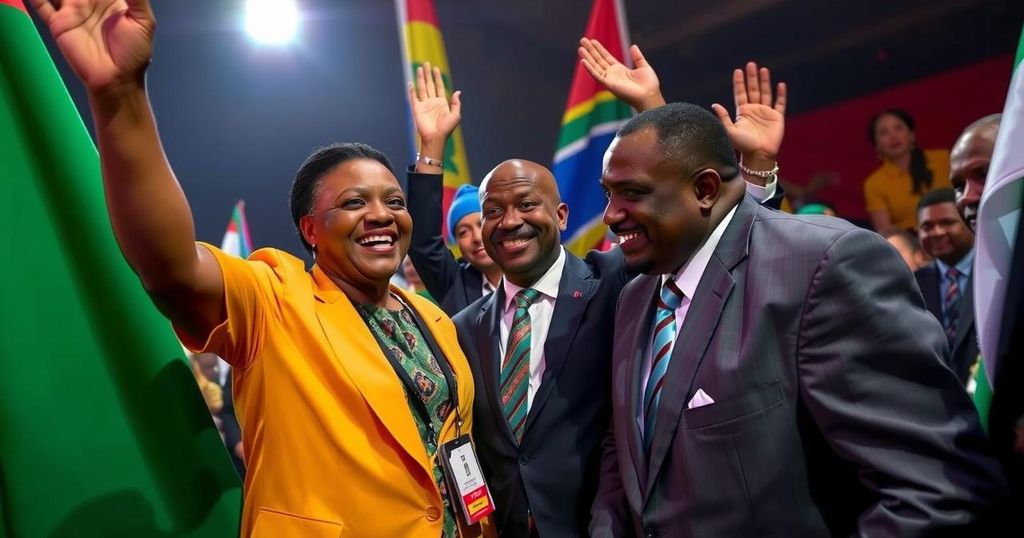Netumbo Nandi-Ndaitwah Secures Victory in Namibia’s Presidential Election

Namibia’s ruling SWAPO party Vice-President, Netumbo Nandi-Ndaitwah, has won the presidential election with 57.31% of the vote, becoming the first female leader of the country. The main opposition party, IPC, led by Panduleni Itula, received 25.5% and has disputed the election results due to reported irregularities and logistical issues that marred polling.
The ruling SWAPO party of Namibia has announced that its Vice-President, Netumbo Nandi-Ndaitwah, has secured victory in the recent presidential election, receiving 57.31 percent of the votes cast. Her main opponent, Panduleni Itula of the Independent Patriots for Change (IPC), garnered 25.5 percent. Nandi-Ndaitwah, age 72, has made history by becoming the first female president of Namibia, a country that has been under SWAPO’s governance since its independence in 1990. The IPC has expressed its intention to contest the election results, claiming numerous irregularities amid the electoral process. The election faced significant challenges, including extended polling periods due to logistical issues such as ballot paper shortages, which resulted in long wait times for voters, with some individuals reportedly waiting for up to 12 hours on the first day.
This election marks a significant moment in Namibian politics, reflecting both continuity and change. Despite SWAPO’s longstanding dominance since 1990, the emergence of the IPC indicates growing dissent among the electorate and a desire for alternative representation. The reported issues within the election process underscore the challenges faced in ensuring free and fair elections in the country. The political landscape in Namibia may be shifting as these developments unfold, and the role of opposition parties like the IPC becomes increasingly relevant.
Namibia, a nation rich in mineral resources, achieved independence from South African rule in 1990. Since then, the country has primarily been led by the South West Africa People’s Organisation (SWAPO), which has maintained a stronghold on political power. The recent election has highlighted both the stability of SWAPO’s reign and the rising challenges posed by opposition parties, particularly as public sentiment evolves. With the increasing presence of parties such as the Independent Patriots for Change (IPC), the dynamics of Namibian politics are being tested, prompting significant discussion about electoral integrity and governance in the region.
In conclusion, the recently concluded Namibian presidential election has resulted in the confirmation of Netumbo Nandi-Ndaitwah as the country’s first female president amid claims of electoral misconduct. While SWAPO’s victory signifies the continuation of its rule, the dissent expressed by the IPC reflects a changing political landscape. The electoral challenges encountered serve as a reminder of the complexities involved in maintaining democratic processes in Namibia, suggesting potential shifts in future political engagements.
Original Source: www.barrons.com







